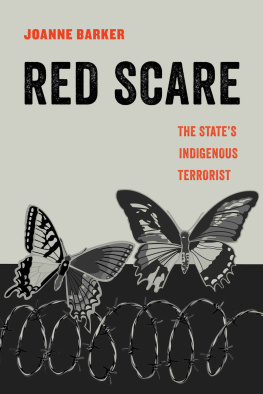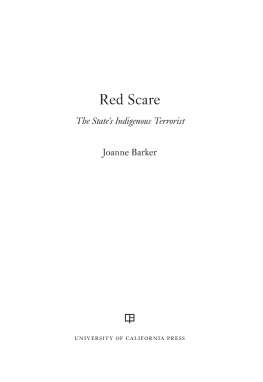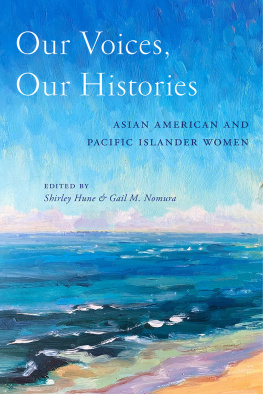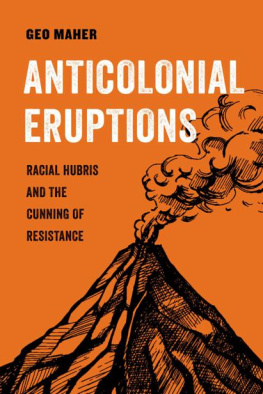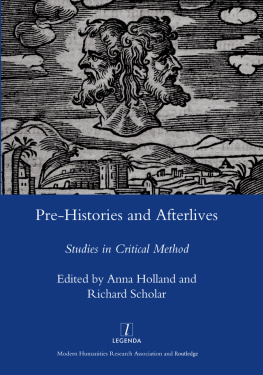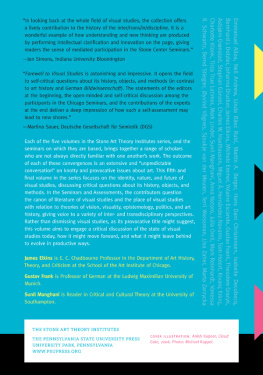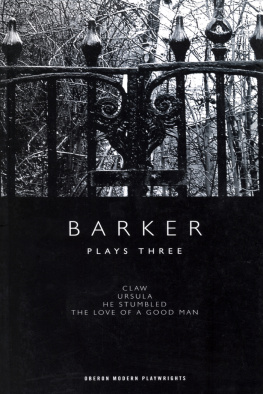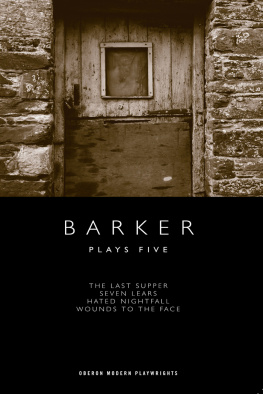Joanne Barker - Red Scare (American Studies Now: Critical Histories of the Present)
Here you can read online Joanne Barker - Red Scare (American Studies Now: Critical Histories of the Present) full text of the book (entire story) in english for free. Download pdf and epub, get meaning, cover and reviews about this ebook. year: 2021, publisher: University of California Press, genre: Politics. Description of the work, (preface) as well as reviews are available. Best literature library LitArk.com created for fans of good reading and offers a wide selection of genres:
Romance novel
Science fiction
Adventure
Detective
Science
History
Home and family
Prose
Art
Politics
Computer
Non-fiction
Religion
Business
Children
Humor
Choose a favorite category and find really read worthwhile books. Enjoy immersion in the world of imagination, feel the emotions of the characters or learn something new for yourself, make an fascinating discovery.
- Book:Red Scare (American Studies Now: Critical Histories of the Present)
- Author:
- Publisher:University of California Press
- Genre:
- Year:2021
- Rating:3 / 5
- Favourites:Add to favourites
- Your mark:
- 60
- 1
- 2
- 3
- 4
- 5
Red Scare (American Studies Now: Critical Histories of the Present): summary, description and annotation
We offer to read an annotation, description, summary or preface (depends on what the author of the book "Red Scare (American Studies Now: Critical Histories of the Present)" wrote himself). If you haven't found the necessary information about the book — write in the comments, we will try to find it.
Red Scare (American Studies Now: Critical Histories of the Present) — read online for free the complete book (whole text) full work
Below is the text of the book, divided by pages. System saving the place of the last page read, allows you to conveniently read the book "Red Scare (American Studies Now: Critical Histories of the Present)" online for free, without having to search again every time where you left off. Put a bookmark, and you can go to the page where you finished reading at any time.
Font size:
Interval:
Bookmark:
CRITICAL HISTORIES OF THE PRESENT
Edited by Lisa Duggan and Curtis Marez
Much of the most exciting contemporary work in American Studies refuses the distinction between politics and culture, focusing on historical cultures of power and protest on the one hand, or the political meanings and consequences of cultural practices, on the other. American Studies Now offers concise, accessible, authoritative books on significant political debates, personalities, and popular cultural phenomena quickly, while such teachable moments are at the forefront of public consciousness.
Joanne Barker

UNIVERSITY OF CALIFORNIA PRESS
University of California Press
Oakland, California
2021 by Joanne Barker
Library of Congress Cataloging-in-Publication Data
Names: Barker, Joanne, 1962 author.
Title: Red Scare : the states indigenous terrorist / Joanne Barker.
Other titles: American studies now ; 14.
Description: Oakland, California : University of California Press, [2021] | Series: American studies now: critical histories of the present ; 14 | Includes bibliographical references.
Identifiers: LCCN 2021016869 (print) | LCCN 2021016870 (ebook) | ISBN 9780520303171 (hardback) | ISBN 9780520303188 (paperback) | ISBN 9780520972674 (ebook)
Subjects: LCSH : Indians of North AmericaSocial conditions. | Social justiceNorth America21st century. | Social movementsNorth America21st century.
Classification: LCC E 98. S 67 B 37 2021 (print) | LCC E 98. S 67 (ebook) | DDC 970.004/97dc23
LC record available at https://lccn.loc.gov/2021016869
LC ebook record available at https://lccn.loc.gov/2021016870
Manufactured in the United States of America
30 29 28 27 26 25 24 23 22 21
10 9 8 7 6 5 4 3 2 1
SCARED RED
Indigenous people are identified and made identifiable by the state as terrorists in order to advance imperialist objectives.
RacismImperialismAnti-pipeline ActivismThe Red ScareIndigeneityTerrorismFuturism
THE MURDERABLE INDIAN : TERROR AS STATE ( IN ) SECURITY
The Murderable Indian, perhaps the first and last authentic Indian, is the terrorist we are all too familiar with. As an affect of racist fears and concerns for personal safety, economic stability, and national security, the Murderable Indian serves to license the states counterterrorist, military, police, and vigilante responses to contain, punish, and deter.
Fear AffectRedskinsOil Industry/Energy PolicySurveillance/PolicingDillon S. MyerPierre Trudeau and Jean ChrtienCOINTELPRODeclaration on the Rights of Indigenous PeoplesStanding Rock and NoDAPLUnistoten CampSexual Violence
THE KINLESS INDIAN : TERROR AS SOCIAL ( IN ) STABILITY
The Kinless Indian enables false and fraudulent claims to Indian ancestry and identity, claims that seem to absolve the notion that one might have any benefit from or complicity with the dispossession of and violence against Indigenous people. It suggests that, all along, one has in fact if in secret been Indigenous. Simultaneously, the Kinless Indian provides the rationale to the state to aggressively challenge the rights of Indigenous people to sovereignty and self-determination.
FraudCherokee CasesDonald J. Trump/Elizabeth WarrenMtis CasesJoseph Boyden
RADICAL ALTERITIES FROM HUCKLEBERRY ROOTS
The Murderable Indian and Kinless Indian are effective because they provide for such a discursive and ideological realignment of Indigenous opposition into the service of state imperialism. Indigenous opposition calls not merely for the abolition of the state but a committed production of Indigenous governance systems based on values of relationality and responsibility.
The Murderable/Kinless IndianAbolitionRematriationSky Woman
When Indigenous activists showed up at Parliament Hill in Ottawa in 2011 to oppose treaty rights violations, it was not the first time they had done so. Nor, in 2016, was it the first time they told their stories to the Canadian Parliament about missing and murdered women and police violence. Indigenous activists in the United States did not show up for the first time in 2016 at Standing Rock to oppose oil extraction. They did not appear for the first time in 2015 before the U.S Congress to urge legislation addressing violence against women. Indigenous peoples have been protesting the imperial forces of invasion, occupation, land theft, extraction, exploitation, and sexual violence for centuries.
And so, too, have they been represented by state and corporate officials (who are sometimes one and the same) as terrorists out to destroy national security and social stability. Ever since the United States became a nation in 1787, and Canada in 1867, Indigenous peoples exercising their sovereignty and self-determination have been depicted as terrorists. As Patrisse Khan-Cullors, Asha Bandele, and Angela Y. Davis have argued, You can be harassed and imprisoned without charge; police can beat and kill you in the streets; private security can use tear gas and attack dogs on you; you can be raped and murdered and discarded in a ditch. When a state or corporation identifies a group or a people as terrorists, they can be willfully defrauded of their territories and resources.
What makes it all the more terrifying is that the invading, occupying foreign government or corporation is not acting on its own to criminalize you. They have the broad support and participation of the public. Across social media and news outlets, Indigenous terrorism has been used to justify the use of harsh counterterrorist measures to monitor, police, and punish Indigenous people. They have been used to minimize and even excuse sexual violence against Indigenous women. They have been used to legitimize land theft and resource extraction and to suppress Indigenous opposition to those efforts.
The basic argument of this book is that Indigenous peoples are identified and made identifiable as terrorists in the service of state imperialism. I draw from Indigenous critical race, feminist, and anti-imperialist scholars and activists to consider how and to what ends Indigenous people are represented as terrorists by the state, often with the full support of the public. I organize these representations by two figures, the Murderable Indian and the Kinless Indian. Representations of Indigenous people as murderable or as fraudulent threats to the states security and social stability demands and rationalizes counterterrorist measures that advance racist ideologies of Indigeneity that directly serve imperialist goals. I conclude with a reflection on the abolition of Indigenous sovereignty and self-determination as an otherwise, as an exercised and lived land-based governance and culture that is a viable alternative to state imperialism and neoliberalism.
But first, I want to acknowledge the multiple Indigenous individuals and communities of comradesscholarly, activist, artist, sometimes all in onethat have helped me work through the issues addressed in this book. When I have shared my research with them, no one ever asked me to discuss Indigenous terrorism against the state or its citizens. Rather, I have been asked, repeatedly, whether I was going to start with smallpox blankets or address sexual violence. At Occupy Oakland organizing in 2011, at Idle No More solidarity actions in Oakland in 2012, at Black Lives Matter demonstrations since 2013, in a delegation to Palestine in 2014, at Standing Rock in 2016, in multiple discussions through the Sogorea Te Land Trust with which I serveno one has ever presumed that Indigenous people were the terrorists. Instead, people have asked how I was going to treat the history and current condition of state terrorism against Indigenous people. I have been struck over and over by the specific questions about smallpox blankets and sexual violence and how these seem to represent so powerfully Indigenous experiences of state terrorism as well as the broad public demand for and cooperation with state violence against Indigenous people.
Font size:
Interval:
Bookmark:
Similar books «Red Scare (American Studies Now: Critical Histories of the Present)»
Look at similar books to Red Scare (American Studies Now: Critical Histories of the Present). We have selected literature similar in name and meaning in the hope of providing readers with more options to find new, interesting, not yet read works.
Discussion, reviews of the book Red Scare (American Studies Now: Critical Histories of the Present) and just readers' own opinions. Leave your comments, write what you think about the work, its meaning or the main characters. Specify what exactly you liked and what you didn't like, and why you think so.

